The Co-operative Councils Innovation Network (CCIN) held its annual meeting in Croydon last week, to discuss solutions for communities hit by austerity in a polarised political climate.
CCIN is a network of local authorities which work together “to find better ways of working for, and with, local people for the benefit of their local community”, using co-operative principles. The movement has enjoyed a higher profile in recent months with growing coverage outside the co-op movement of the Preston model, which favours local procurement for services, with an emphasis on social added value and co-op businesses.
Steve Reed, shadow minister for civil society and honorary president of CCIN, told the meeting initiatives of the co-op council movement included Rochdale mutualising its entire council housing stock; Plymouth creating a network of community energy co-ops; a community land trust in Croydon; and, in Lambeth, Black Thrive, which gives the black community greater oversight over mental health services.
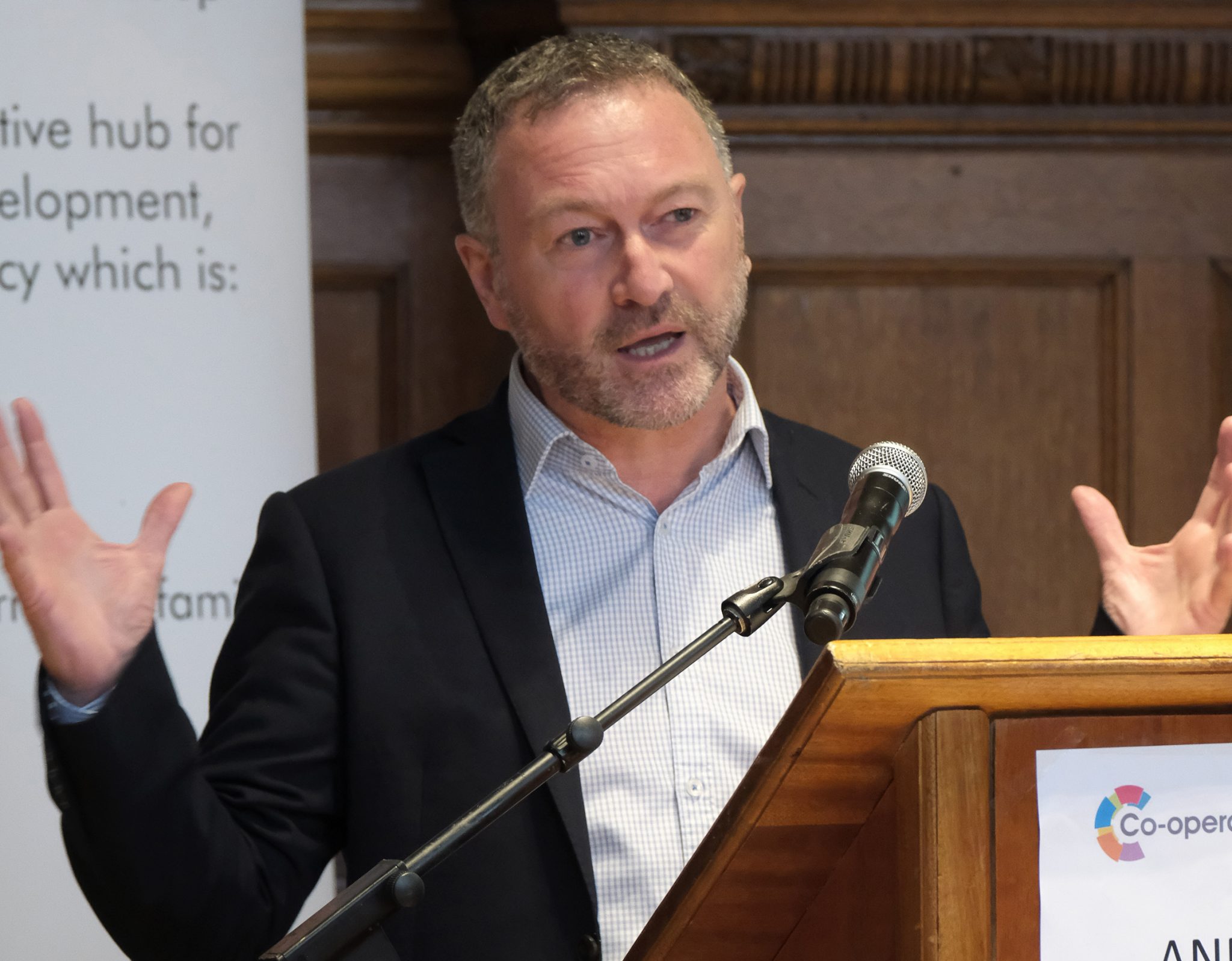
Mr Reed said such initiatives were vital to counter the effects of the austerity ushered in by the 2008 crash, which had left voters feeling alienated, luring them towards populist political projects such as Brexit.
Related: Steve Reed warns of populist threat – but can co-ops save democracy?
New technology also brings challenges, he added. “Global corporations own our data and exploit it for their own gain often at our expense. Does the answer lie in setting up a data co-operative where we all collectively own our data and can choose how it is used?
“There’s a huge challenge that co-operative councils can lead on since national government won’t.”
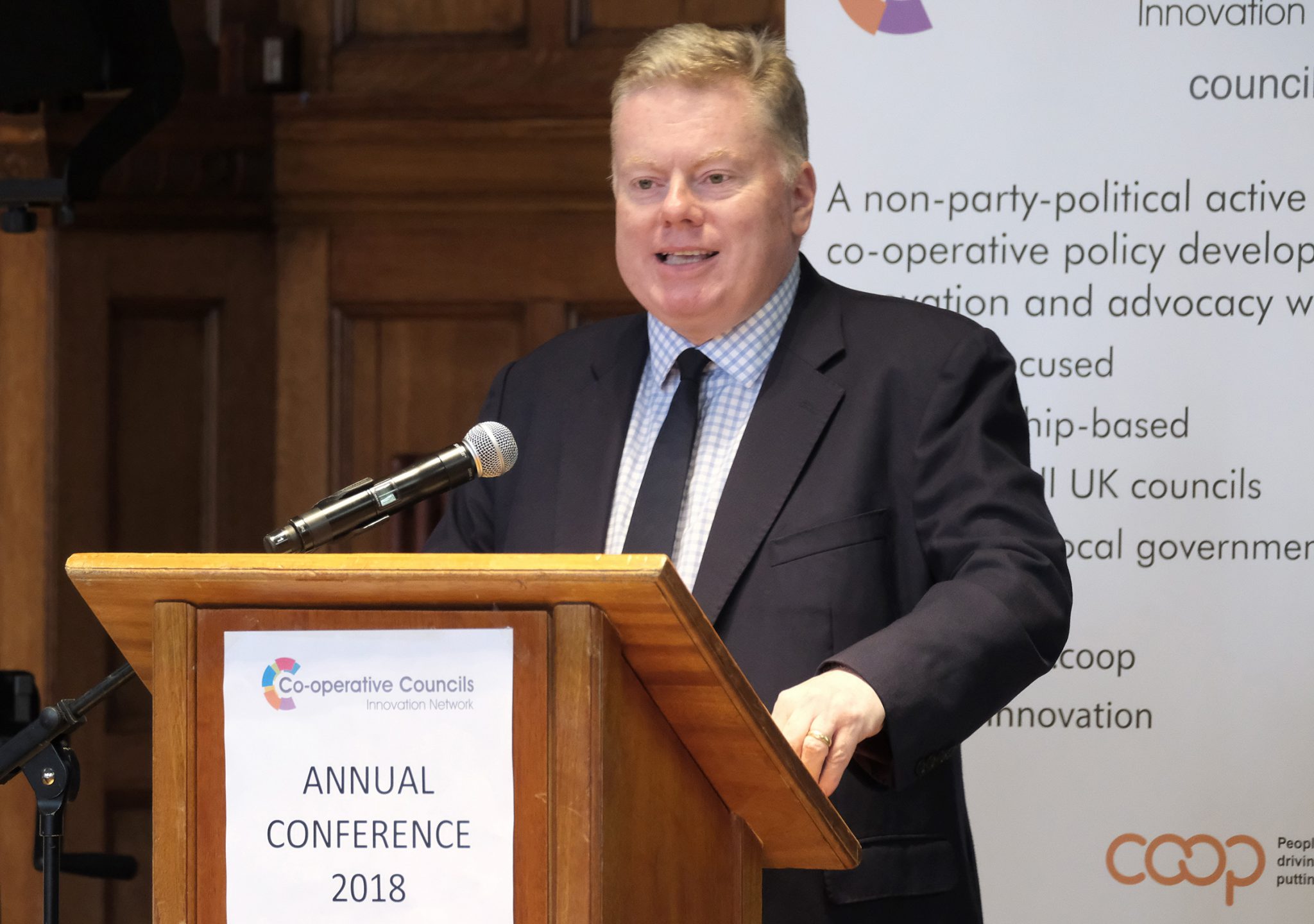
With co-operative ideas being adopted by Labour, the movement was finding its moment, he added. “After a period where Labour felt too much like a battle between the 1970s and the 1990s, we’re starting to see the shape of 21st-century socialism, and co-operative values are at the heart of it.”
In his keynote speech to the conference, Lord Kennedy of Southwark told the councils they were “at the frontline making difficult decisions” in a tough era for local government, “but it’s a good time to be a co-operator”, with progress for co-op politics in Parliament and on local authorities.
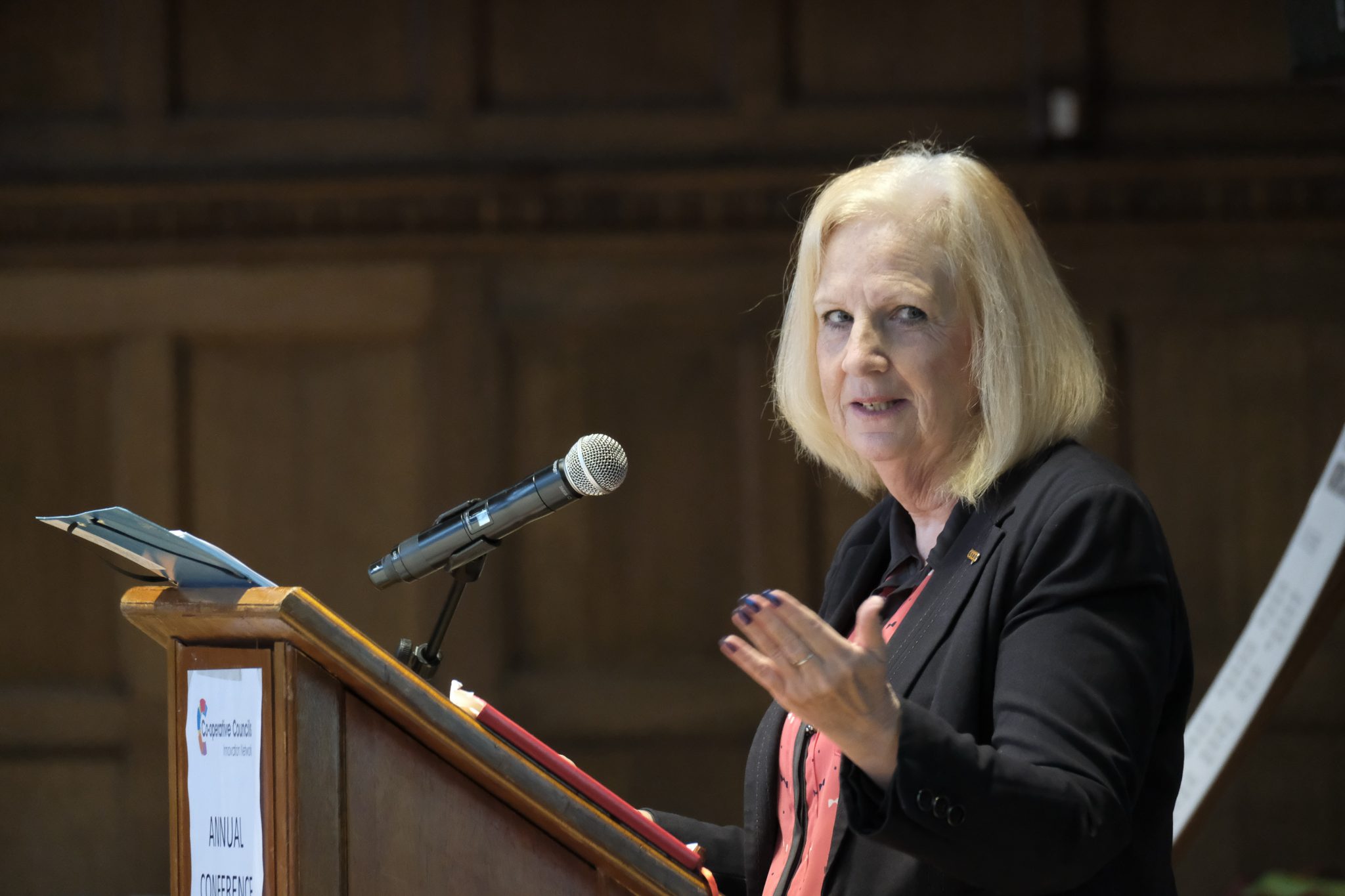
Cllr Sharon Taylor, chair of CCIN and leader of Stevenage Council, said the councils in the network shared £7.5bn worth of budgets between them, had seen Andy Burnham become the Co-op Party’s first mayor of a devolved authority in Greater Manchester, and had attended 25 events in 12 months, “spreading the word about what co-op councils can do for local communities”.
Panel: creating a co-operative commonwealth
Chairing the first panel session, Lib Peck, leader of Lambeth Council, said the current economic model is “undeniably broken … and unsustainable in economic and environmental terms.
“It’s denying people opportunities rather than providing opportunities for them.”
Introducing discussion of how to create a co-operative commonwealth, she added: “People need to feel that the economy works for them.”
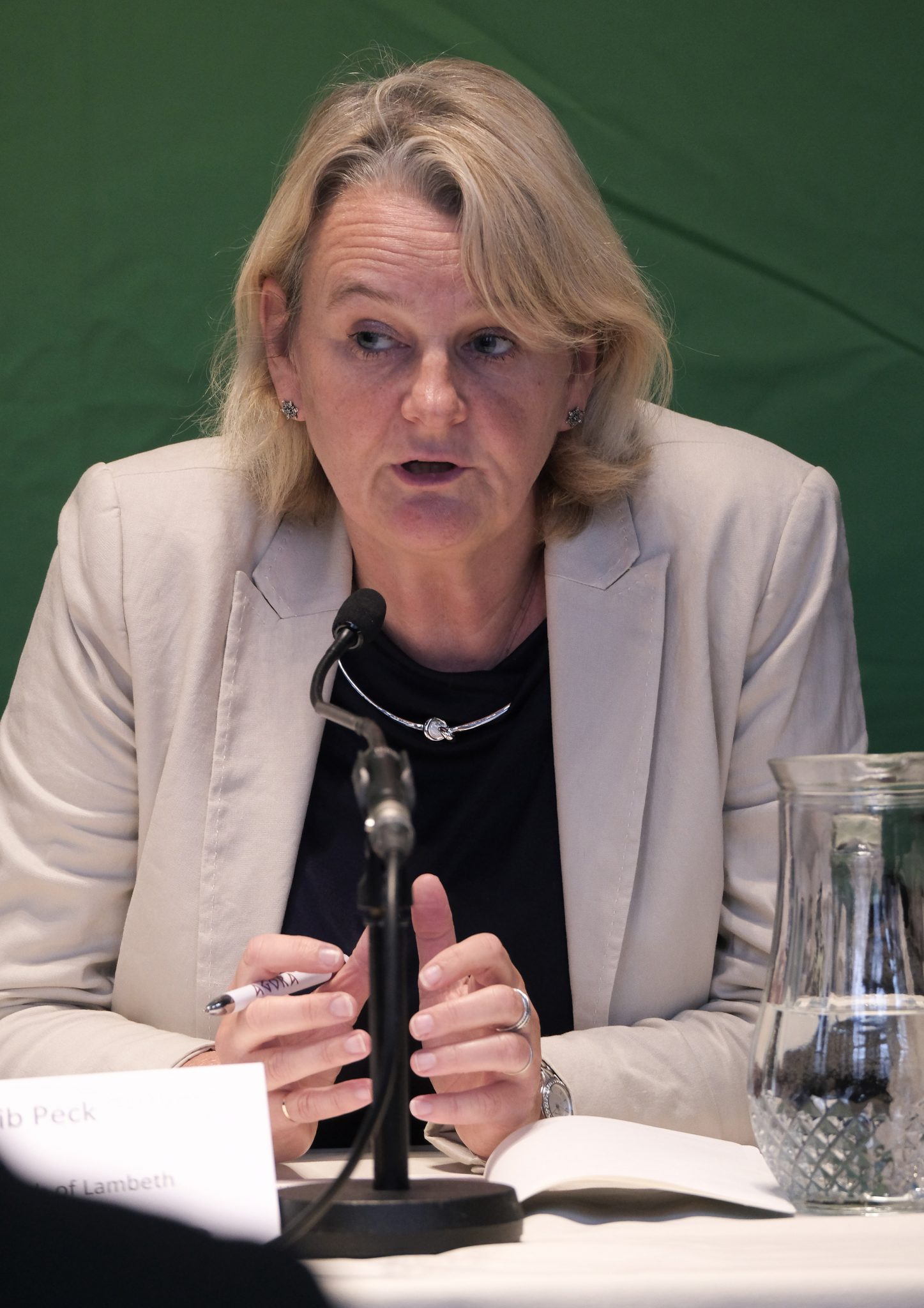
This meant a different set of values for co-operative councils – not just in a procurement policy which takes into account social value but also in the type of businesses they want to attract to their areas. And long-term planning, including training the local workforce, would help to “build something sustainable”.
Cllr Habib Rahman, cabinet member for communities in Newcastle, said: “The co-operative commonwealth does not need to be at the expense of responsible private enterprise. It can work in a competitive marketplace.”
He gave the John Lewis Partnership as an example of a co-operative commonwealth “hidden in plain sight” – but warned that its recent redundancies, and the threat from online shopping, proved that “co-ops are businesses and affected by economic pressures”.
Cllr Rahman added: “What can a council do to build a co-operative commonwealth? It’s not enough to create the conditions, we have to stand up for co-ops and make the case for communities to put their money into co-ops.”
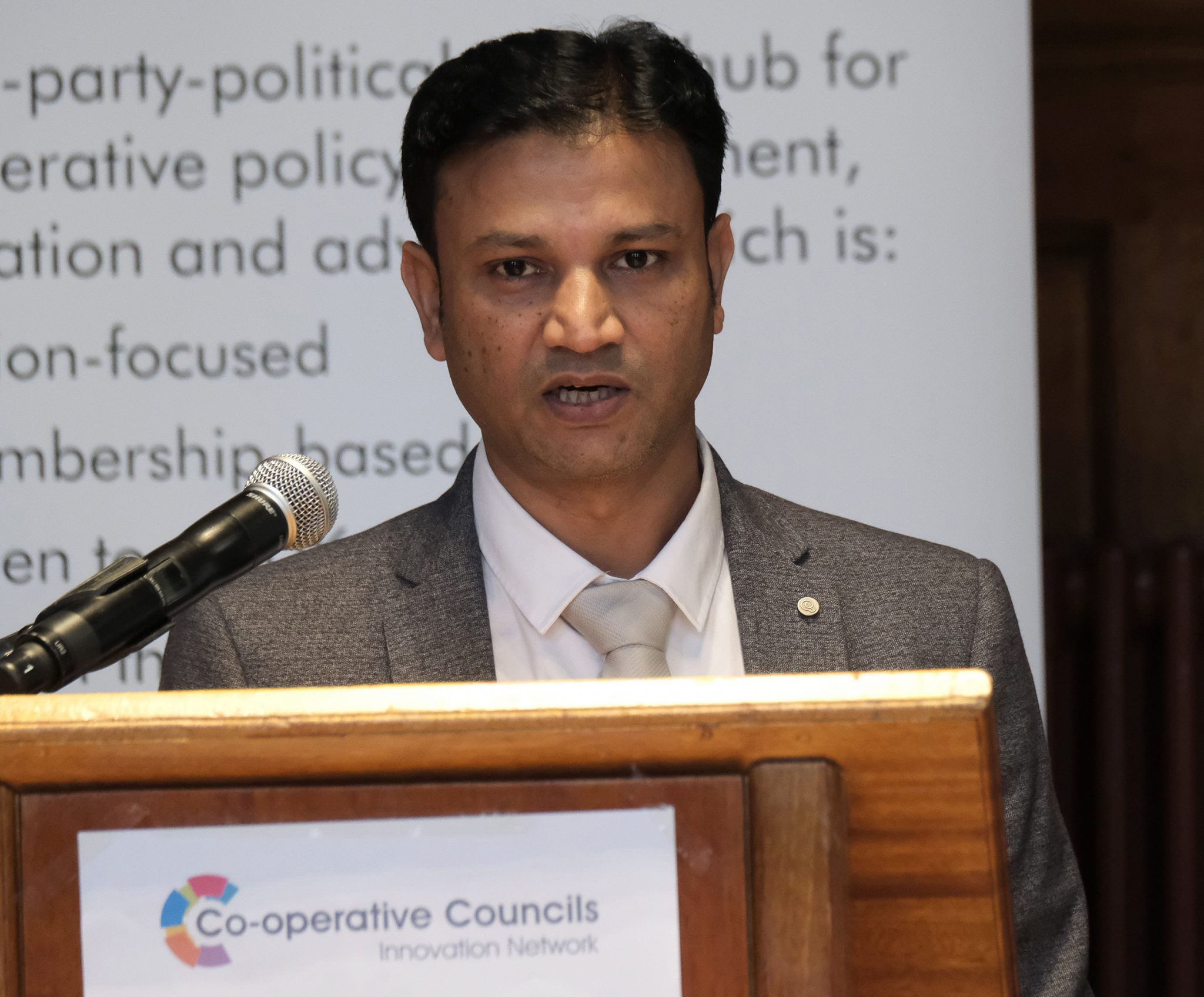
Cllr Simon Hall, cabinet member (finance) at Croydon, said responsible business is key to procurement policy, “embedding the Living Wage in every contract”.
He added: “We we were told people wouldn’t bid, it would bankrupt the council, but we got it through. All the nursing homes in the borough now pay the London Living Wage. Even in the current tough financial environment you can do the right thing and make it work.”
Steve Eling, leader of Sandwell Council, listed a number of initiatives such as cookery classes and “fuel for school” schemes to encourage healthy, affordable eating – but warned these projects needed to be financially viable, especially after Brexit when there is no EU funding.
“We’ve seen so many social enterprises come and go that are totally reliable on funding,” he said. “There’s a significant risk of social enterprise and co-ops that end up totally reliant on public sector contracts. If the contract disappears, the project disappears.”
Education
For the model to work, the panel agreed, council staff must be trained in co-operative principles. Simon Parkinson, chief executive of the Co-operative College, said his organisation had trialled learning lunches, drop-in sessions and e-learning.
“Local authorities have a statutory duty to provide second-chance adult learning,” he added. “If we are going to save democracy how do we give people the skills and confidence to take part in it?”
He said the College was working with Oxford Brookes University and other partners on ways to take its adult learning policy forward. “That could be another way to create co-operators,” he added.
Related: Can public service mutuals keep the co-op ethos?
The issue of skills and training also came up in an afternoon session looking at sustainable communities; there are issues of how communities can take control of assets when they lack the skills and expertise, the financial resource, or are time-poor.
John Atherton, membership officer at Co-operatives UK, said a core principle to sustainable communities was to train people and invest in them “to make the most out of what you’ve got”. And smaller co-ops could borrow the expertise of larger co-ops by having their members on their boards.
Ian Malcolm, leader of South Tyneside Council, said different areas have different skill sets; in affluent areas, with a pool of doctors, lawyers and other professionals, the process is easier – but, he says, it is still empowering.
“In poorer areas where it’s grandmothers and single parents,” he added, “they need support from the centre and we’re very careful that it’s them running the show. We help them fill in funding forms and planning applications.”
The challenge of Brexit
Potential financial problems after leaving the EU were the subject of the second panel, on community wealth building in post-Brexit Britain. Cllr Matthew Brown, leader of Preston City Council, said Brexit was the result of anger and an increasingly unfair economy, where real wages had fallen despite overall growth.
“We’ve got to deal with this situation,” he said. “It goes beyond Brexit back to the 2008 crash. When that happened things were never the same again.”

Cllr Brown said local economic models, such as those created in Cleveland, Ohio, or by his own council in Preston, kept money working in the local area through targeted procurement and the creation of worker co-ops to take public service contracts.
Sounding a gloomy note, Cllr Peter Bradbury, cabinet member for leisure and culture at Cardiff, said Wales had been hit hard by deindustrialisation, the financial crash and austerity.
“Local government has had to bear the brunt of austerity,” he said. “In England, the government has systematically destroyed local services…. I don’t see it getting any better… and when we alienate every trading partner in EU that will also have an effect.”
But he said local government was in a “perfect position” to remedy the situation.
“Co-operation is about talking to people, not about people,” he added. “Just remember that right-wing leavers in the Tory Party don’t want to leave in the interests of social justice or equality.
“We in this movement have got to be more political and more vocal about what is happening. We have the skills in this room to come up with answers.”
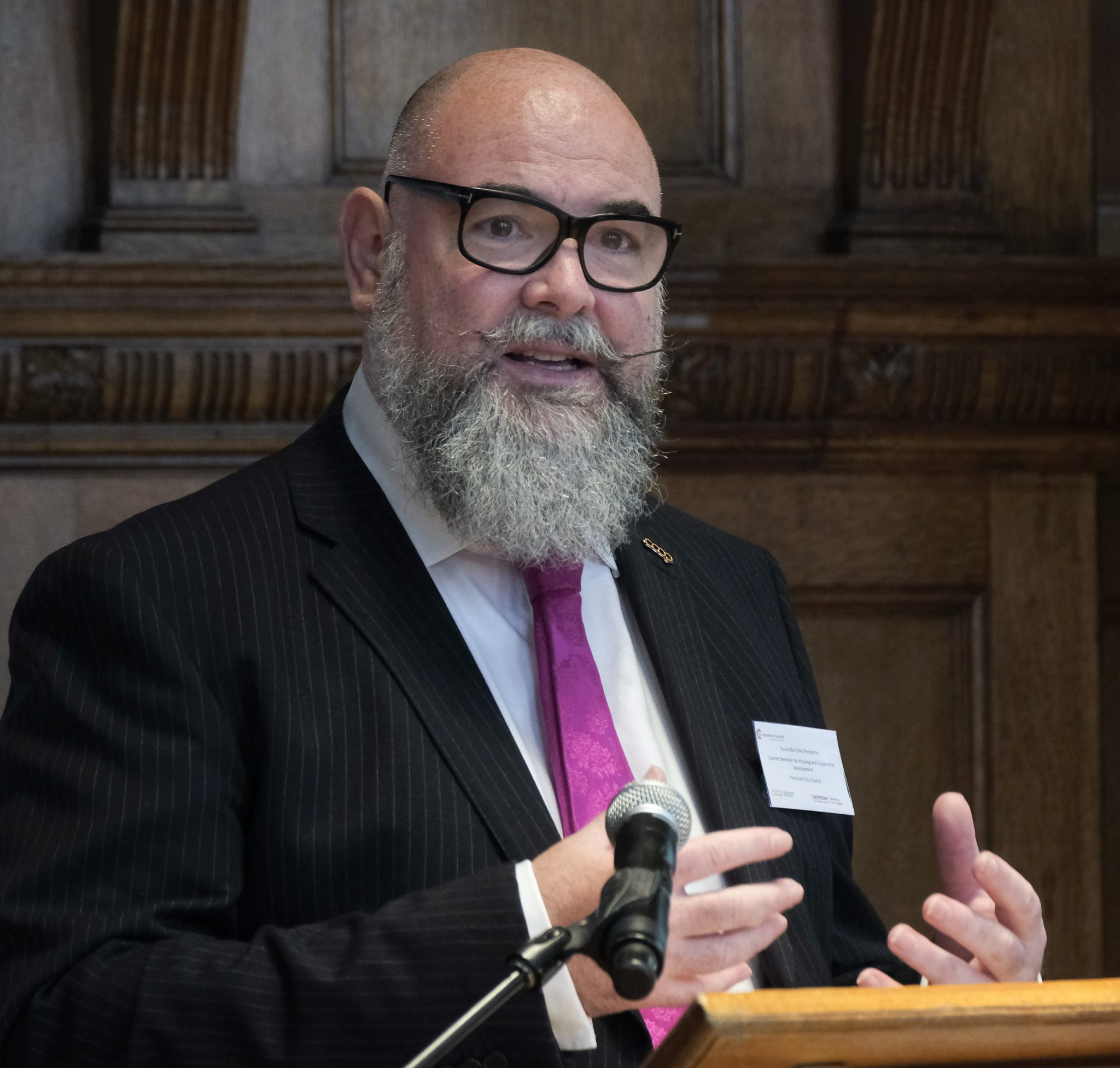
Cllr Chris Penberthy, cabinet member for housing and co-op development at Plymouth, said: “Councils should bombard the government with area impact assessment requests.
“We have a working party assessing Brexit – and all outcomes are bad. We’ve got to handle it whatever, with not a penny for extra resources.”
He added: “Co-operation is going to be the thing that saves our local communities. We need to be doing stuff around inclusive growth and community wealth building and find a language to talk about them that people understand.”
He highlighted local initiatives such Plymouth’s 1,000 Club, which signed up 1,000 businesses to tackle youth unemployment through training.
Sustainability
The afternoon session looked at how to create sustainable societies through co-operation, at a time when many communities are at breaking point.
“We’re moving into areas where our societies are no longer sustainable,” said Steve Reed. “People around the country are experiencing a feeling of loss. Their hope in the future has gone, so the things that bind us together are shattered.”
Cllr Reed pointed to deepening inequality and the loss of community institutions and shared spaces, such as pubs, libraries and bank branches. “Families are under pressure,” he said. “Young people who get a degree have to leave their home town to get a job; those who don’t get a degree are excluded from globalised economy and left behind.”
Related: Andy Burnham tells co-op movement to ‘bring me ideas’
But, he added, the CCIN meeting had highlighted “exciting ideas to deal with this”, such as asset transfers, co-op housing, renters’ unions, and co-op commissioning models where service users are given a say.
Ian Malcolm, leader of South Tyneside Council, said: “What we’re seeing is communities stepping up to the plate and having an influence over how their community assets are run.”
He said this could lead to better services, giving the example of community centres in South Tyneside which used to close for summer holidays for a deep clean, when they were needed most. Under community control, they remain open.

Closing the day, Nick Crofts, president of the Co-op Group National Members’ Council, said the innovations of the CCIN “go back to the roots of our co-op movement. The whole history of the co-op movement is a history of innovation with the aim of making the world a better place.”
Mr Crofts said the Rochdale Pioneers set out to “correct an injustice in food retail” and their ideas “went viral as a concept”.
He added: “We need to find co-op solutions to the problems we face as a society. Those in Rochdale didn’t just set out to sell food – they chose the name ‘Pioneers’ deliberately; they set out to change the world … and it seems to me that we are in the same spirit.”
And he told the CCIN: “You are as needed now as those pioneers in 1844.”

